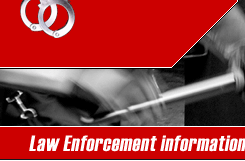Although most people never expect to be charged with a crime, there can come a time when that can happen. These types of charges can range form warrants being issued for aid traffic tickets to individuals filing lawsuits against you. The best time to prepare for being charged with a crime is before it ever happens. Since lawsuits and arrests can move quickly, it is best to understand the basic events that lead up to and constitute being charged with a crime prior to the being charged. If you are knowledgeable about the events beforehand, the process can go easier and hopefully, be less intimidating. No matter which type of crime you are charged with, the proceedings will usually happen in a predetermined way.
First, a warrant will put for your arrest. If a warrant is issued against you, you will usually be notified of the warrant by being served. Being served means that a police officer will locate you and deliver your warrant papers in person. On rare occasions, a person is arrested before being served with a warrant.
In these cases, the arresting officer must show the warrant papers within a reasonable amount of time after the arrest has been made. After you have been arrested, you will be taken to the police station to be booked. Being booked means that you will be fingerprinted and a file will be opened regarding your case. After being booked, you will generally spend a short amount of time in jail while you await your initial hearing and arrange payment for bail. While you are in jail, you are allowed to contact an attorney. Any person charged with a crime has the right to seek legal representation.
It is very important that you at least meet with an attorney before your initial hearing. If you cannot afford an attorney, or you have not chosen an attorney yet, the court can and must appoint a lawyer for you. During the initial hearing, you will be asked to make a plea of guilty, not guilty or no contest. Your attorney will advise you as to which plea is most favorable for your situation. Even if you are guilty you may opt to plead not guilty.
Some defendant's choose to do this if they feel that the prosecutor does not have enough evidence against them to prove their case. If you plead not guilty, you will be given a trial in which it is the responsibility of the prosecution to prove your guilt. If you plead guilty or no contest, you will not be given a trail, rather you will go straight to a sentencing hearing. If you are proven not guilty at your trial, you will be released from custody.
If you are found guilty, you will be given a sentencing hearing. A sentencing hearing is a hearing that allows all parties involved in your case to express the facts involving your case that may affect your sentence. These parties could include your accuser, yourself or persons who are defending your case. After the hearing the judge will consider all evidence presented and then make a decision regarding your sentencing.
Your sentencing could include additional jail time, monetary fines, community service or mandatory treatment programs. Depending on the severity of your crime, the evidence against you and your initial plea, the degree of sentencing could vary greatly. For smaller crimes, sentencing may only include a small fine and no jail time. To insure that all of your rights are protected and that you receive the least sentencing possible, it is important that you hire a competent attorney and become knowledgeable about all of your rights. Did you find this article useful? For more useful tips and hints, points to ponder and keep in mind, techniques, and insights pertaining to crime, do please browse for more information at our websites.
www.infozabout.com www.law.infozabout.com


